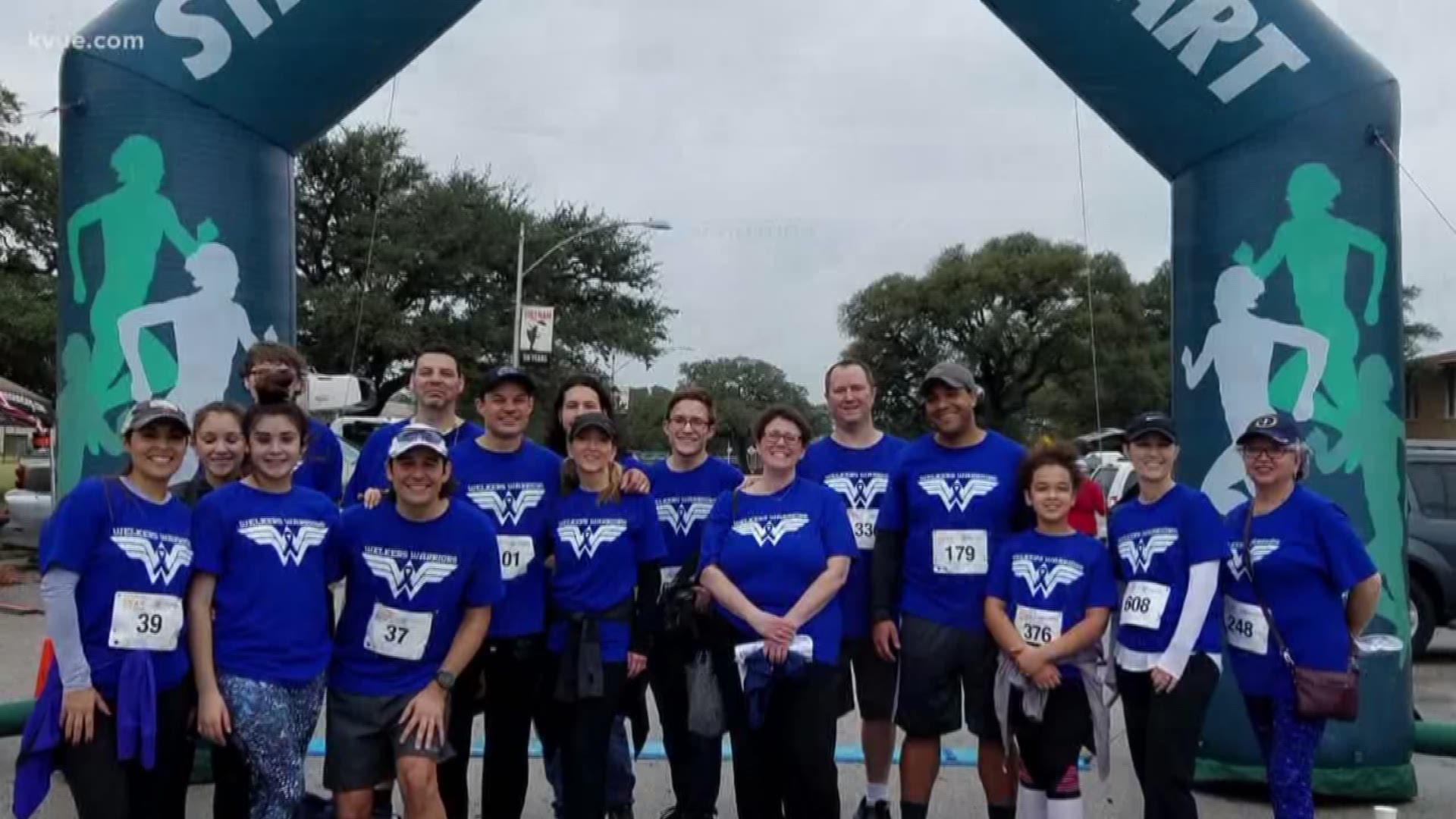Austin — An Austin woman is on a mission to spread awareness about the importance of early screening and detection for colon cancer, as March is Colon Cancer Awareness Month.
Jennifer Welker is a 43-year-old wife and mother who was diagnosed with stage four colon cancer in 2014. She is now on continuous chemotherapy because her cancer has spread to her liver and lungs.
"I'm in the chair on a Monday for about four to five hours, and then I carry a pump with me that infuses chemo continuously for 46 hours after that," said Welker.
She endured the process every two weeks. Recently, doctors changed it to every three weeks because the chemo is just too hard on her body.
"It's been rougher and rougher," Welker said.
A process the wife and mother says stopped being effective a few months ago.
"My tumor markers are rising, which is the measure of amount of tumors in your blood .. number should be under a two if you don't have cancer and mine is in the 70s right now," Welker said.
Which is why Welker wants to raise awareness about the importance of early detection and screening. She doesn't know how much time she has left.
This comes at a time when the Journal of the American Medical Association shows that more younger people, between the ages of 20 to 54, are dying from colon cancer.
"There is an increase in incidents in mortality in patients less than 50 years of age. It's concerning so we need to be vigilant about patients in younger age classes that come see us for symptoms," Dr. Chad Long with Austin Gastroenterology said.
Dr. Long diagnosed Welker with colon cancer back in 2014. He said the study is particularly concerning because the overall death rate for colon cancer is going down, but not for people between 20 to 54.
"It's unusual. Typically, 90 percent of colon cancers are diagnosed in individuals over 50 years of age, and so to find someone in their late 30s with colon cancer is not common," said Dr. Long.
In the meantime, Welker said she is making every moment count with her husband and 10-year-old son. She's also become an advocate, sharing her story so others will get screened.
Doctors recommend getting colonoscopies at the age of 50, but that's for people without symptoms. Go seek help if you have any change in bowel patterns, rectal bleeding or blood in bowel movement.
Also, if your parents or siblings have or had colon cancer, you are more at risk of getting it as well. Doctors say you should start getting screened at 40 and then rechecked every five years after that.

